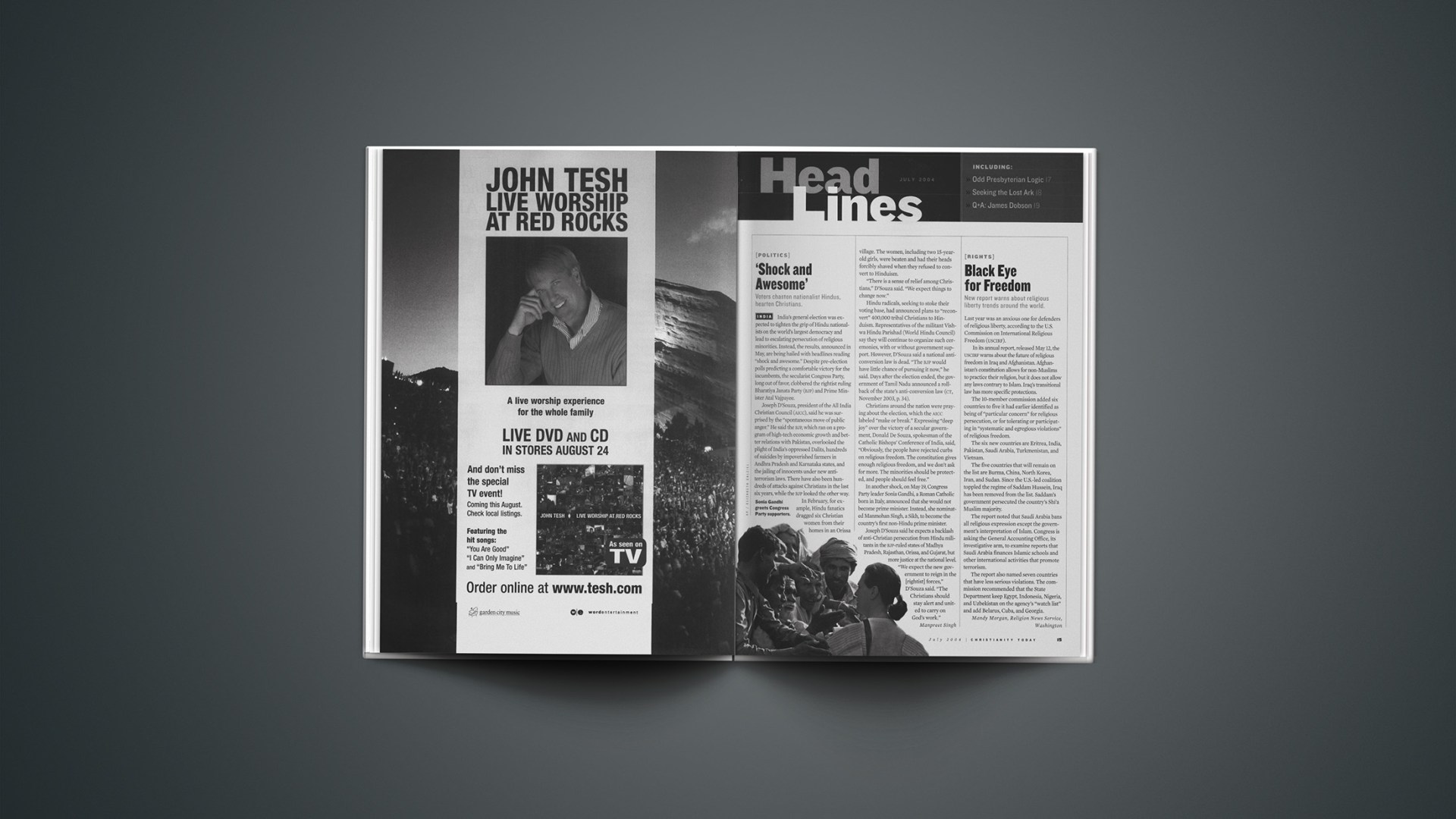Imprisonment, torture and murder as part of religious persecution will continue unchecked around the world unless the United States takes economic or diplomatic action to curb such practices, according to the U.S. Commission on International Religious Freedom.
The commission, in its annual report, released May 12, also warned about the future of religious freedom in Iraq and Afghanistan, two nations in which the United States has been conducting wars to topple oppressive regimes. It called on the United States to support “moderate” Muslims and encourage explicit guarantees of individual religious freedom in the two countries’ permanent constitutions.
Afghanistan’s constitution provides a general right to religious freedom while Iraq’s transitional law has more specific protections.
“With no guarantee of the individual right to religious freedom and a judicial system instructed to enforce Islamic principles and Islamic law, the new constitution does not fully protect individual Afghan citizens against, for example, unjust accusations of religious `crimes,’ such as apostasy and blasphemy,” the report said.
While Afghanistan’s constitution allows for non-Muslims to practice their religion, it does not allow any laws contrary to Islam.
The panel was created in 1998 to monitor and advise the government on international religious rights.
In its newest report, it called on President Bush, Secretary of State Colin Powell and Congress to take steps such as providing human rights training or withholding support for international loans to countries with records of severe religious persecution.
The 10-member commission added six countries to five it had earlier identified as being of particular concern for religious persecution, or for tolerating or participating in systematic and egregious violations of religious freedom.
The six new countries that the commission considered to be violating religious rights are Eritrea, India, Pakistan, Saudi Arabia, Turkmenistan and Vietnam.
There was dissent among the commissioners as to whether India, which has a democratically elected government, should be placed on the list.
“Despite these democratic traditions, religious minorities in India continue to be subject to violent attacks,” Commissioner Richard Land said. Christians in India have frequently complained they face persecution at the hands of Hindu nationalists.
The five countries that will remain on the list are Burma, China, North Korea, Iran and Sudan. Since the U.S.-led coalition toppled the secular regime of Saddam Hussein, Iraq has been removed from the list of countries of particular concern. Hussein, a Sunni Muslim, has been accused of persecuting the country’s majority Shiite Muslims.
The commission report noted that Saudi Arabia bans all religious expression except the government’s interpretation of Islam.
“Many persons worshipping privately continue to be harassed, arrested, imprisoned, tortured, often deported, and generally forced to go to great lengths to conceal private religious activity from the authorities,” the report said.
Following up on a recommendation the commission made last year, members of Congress are asking the General Accounting Office, which is Congress’ investigative arm, to examine reports that Saudi Arabia is financing schools and other activities around the world that promote religious extremism and violence.
“These reports raise troubling questions about the Saudi government’s role in propagating worldwide an ideology that is incompatible with both the war against terrorism as well as internationally recognized guarantees of the right to freedom of religion or belief,” Commission Chairman Michael Young said.
The report also named seven countries that have less serious violations of religious freedom but require close monitoring. The commission recommended that the State Department keep Egypt, Indonesia, Nigeria and Uzbekistan on the agency’s “watch list” and add Belarus, Cuba and Georgia.
Young said that the commission, which includes a Muslim scholar, is not primarily concerned about Islam. “The central concern is taking ideologies to justify repression,” he said.
In response to questions about the abuse of Iraqi prisoners and detainees by American soldiers, commissioners noted they had recommended a year ago that religious freedom experts be sent to Baghdad.
“The concerns about human rights and human dignity are central to this conflict,” Young said.
Copyright © 2004 Christianity Today. Click for reprint information.
Related Elsewhere:
More information, including the report, is available from the U.S. Commission on International Religious Freedom web site.
More Christianity Today articles on religious freedom and persecution are available on our persecution page.










